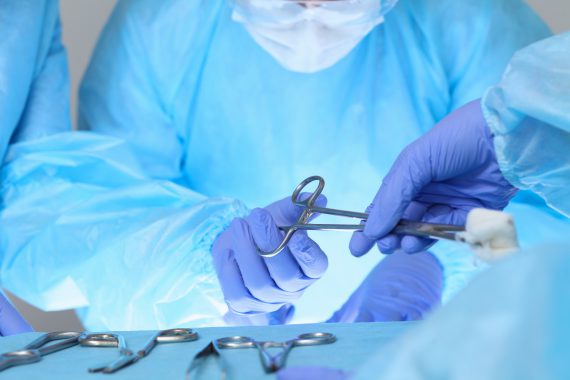Several hospital trusts are continuing to postpone non-urgent operations and outpatient appointments nearly a month after NHS England’s suspension was lifted.
Pulse reached out to all acute trusts in England and out of 86 trusts which responded, 12 said they had not fully restarted procedures.
GP leaders said the situation meant practices seeing an increase in demand, including patients attending to obtain pain relief whilst awaiting surgery.
This follows NHS England’s pre-Christmas announcement that trusts should put non-urgent elective work and outpatient appointments on hold and concentrate on coping with emergencies for the month of January.
A motion passed by MPs calling on the Government to increase funding to the NHS to restore services to normal levels, and reschedule the tens of thousands of cancelled operations, was not acted upon.
A number of trusts told Pulse that they had resumed some elective work but not all, whilst others were still cancelling a percentage of operations and outpatient appointments.
For example, Stockport NHS Foundation Trust has not resumed routine orthopedic elective procedures while Sherwood Forest Hospitals NHS Foundations Trust is hoping to return to full capacity at the end of this week, having cancelled general surgery and gynaecology procedures.
Trusts which are reviewing elective work on a day-to-day basis include the Queen Elizabeth Hospital King’s Lynn NHS Foundation Trust and Surrey and Sussex Healthcare NHS Trust.
West Hertfordshire Hospitals NHS Trust said it plans ‘to resume elective activity at Watford General as soon as demand for urgent care returns to more normal levels’.
Doctor leaders said it was ‘short-sighted’ to postpone elective work and outpatients appointments to cope with winter pressures, and GPs were left to pick up the pieces.
Dr Chandra Kanneganti, the BMA GP Committee policy lead for the GP Forward View, said: ‘I do not think they are reaping the benefits they expect.’
He said patients waiting for hip and knee operations are attending general practice instead for help with pain relief.
‘It is short sighted to not look at the patient as a whole,’ he added.
Londonwide LMC chief executive Dr Michelle Drage said: ‘These attempts to mitigate a lack of capacity in hospitals are themselves symptoms of the overall problem facing the NHS, and those patients in need who it is designed to care for.
‘Delayed procedures mean people remain in discomfort and need ongoing support in the community from their GP. ‘
She added: ‘This takes up GP, practice nurse and staff time which could be spent helping to keep other people well and out of secondary care.’
GPC chair Dr Richard Vautrey said: ‘The ongoing pressures on hospitals is having a big impact on practices as patients attend seeking help and support as their procedures are delayed. The longer this situation goes on, the worse for patients and practices.’
BMA council member and Derbyshire GP Peter Holden said: ‘What annoys me about this is that the professionals warned the Government 15 years ago that this [crisis] would happen, but they did not want to listen because the BMA told them so. It is chickens coming home to roost.’
An NHS England spokesperson said: ‘The National Emergency Pressures Panel asked hospitals to defer non-urgent operations to free up capacity to deal with winter pressures.
‘However, decisions on whether or not to go ahead with a procedure are rightly always made locally by clinicians with the best interests of the patient in mind.’
GPs struggling through the winter crisis
Hospital trusts were told just before Christmas that they could defer all non urgent in-patient operations to mid-January, later extended to 31 January. At the time, health secretary Jeremy Hunt apologised to patients but added that it was better than cancelling at last minute as had happened previously.
Pulse learned in the first week of the year that ‘horrendously pressured’ GP practices were cancelling leave and working overtime as NHS was ‘flooded’ with flu cases and PHE data later showed a 78% increase in GP consultations for flu-like illness in the week ending 7 January.
The CQC recognised the pressure on GP practices by deciding to halt re-inspections of practices with good and outstanding ratings to free up practices’ time until the end of January, but NHS England declined GPC’s request to suspend QOF stating that general practice had instead been supported via a £20m winter support fund.
But this meant general practice was allocated just 4% of the total amount of winter resilience funding given to NHS this year, with the rest going to secondary care, which BMA’s GP Committee said was ‘far too little’.
Visit Pulse Reference for details on 140 symptoms, including easily searchable symptoms and categories, offering you a free platform to check symptoms and receive potential diagnoses during consultations.

















